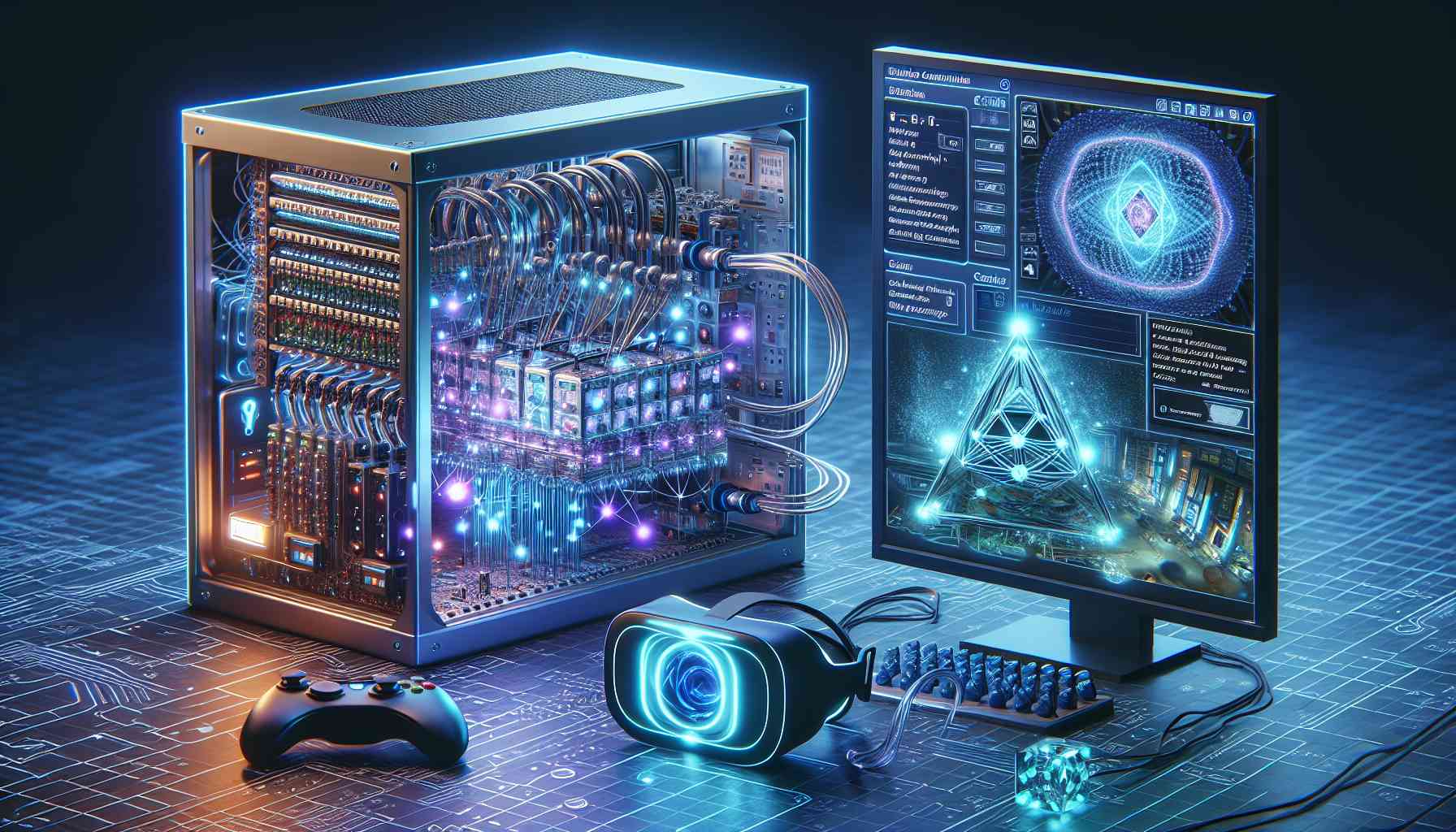Quantum Computing and Gaming: The Future of Interactive Entertainment

The gaming industry has always stood at the forefront of adopting groundbreaking technologies to enhance user experience. From the 8-bit sprites of yesteryear to the near-photorealistic environments of today, the evolution of gaming has been nothing short of spectacular. Now, poised at the edge of a new technological revolution is quantum computing, a concept that promises to redefine the possibilities of interactive entertainment.
Understanding Quantum Computing
Quantum computing uses the principles of quantum mechanics to process information. Traditional computers use bits as the smallest unit of data, represented by either a 0 or a 1. Quantum computers use quantum bits, or qubits, which can exist in multiple states simultaneously, thanks to superposition. This, combined with another quantum principle called entanglement, allows quantum computers to solve complex problems much faster than their classical counterparts.
Quantum computing’s potential has stirred the gaming industry, creating a burgeoning field where games could operate on principles beyond the binary limitations of classic computing. The added processing power might not only transform the types of games we play but also how we play them.
The Quantum Leap in Gaming
The leap into quantum computing within the gaming sphere could manifest in several exciting ways. Here are some prospective implications:
🔎 First, quantum computing could lead to revolutionary AI systems. The increased computational capacity can allow for more nuanced and sophisticated AI behavior, making non-player characters (NPCs) more responsive and lifelike. In multiplayer games, such AI could form adaptive enemies or companions that learn from players’ actions.
🔎 Second, the procedural generation of content could be significantly enhanced. Games like ‘No Man’s Sky’ already utilize algorithms to generate vast, explorable universes. Quantum computing could take this to new heights, creating more detailed and varied environments, potentially with their own evolving ecosystems.
🔎 Moreover, with quantum computing’s ability to quickly solve complex problems, game physics and environmental interactions could be far more realistic. Developers would be able to implement quantum mechanics-based simulations for fluids, smoke, or even cloth, making the virtual worlds more immersive.
Challenges and Considerations
However, harnessing this quantum advantage is not without its challenges. The technology is still in its infancy and is plagued with issues like error rates and the need for extreme cooling. Nevertheless, research in quantum error correction and advances in technology aim to overcome these obstacles.
There’s also the question of accessibility. High costs and sophisticated operations currently limit the deployment of quantum computers. It may be years before quantum-powered games become mainstream. For now, cloud-based quantum computing services may bridge this gap, allowing players to experience the power of quantum without owning a quantum machine.
Implications for Developers and Players
For game developers, quantum computing offers an exciting canvas to reimagine gameplay mechanics and narratives. But it also demands a retooling of skills and adapting to quantum development languages like Q# from Microsoft or Qiskit from IBM.
For gamers, this technological evolution could mean deeper and more engaging experiences. Imagine games where every choice genuinely alters the narrative, resulting in a near-infinite number of storylines, or multiplayer battles that utilize real-time strategy modifications beyond anything currently possible.
Glimpsing the Quantum Horizon
The integration of quantum computing into gaming is not a question of if, but when. As commercial quantum computers become more viable, the gaming industry may undergo a transformation that rivals the leap from two dimensions to three.
What is a qubit?
A qubit is the basic unit of quantum information, analogous to a bit in traditional computing. Unlike a bit, which can be either 0 or 1, a qubit can represent 0, 1, or any quantum superposition of these states, offering more processing power.
Will quantum computing replace traditional gaming consoles?
Not in the immediate future. Quantum computing is currently suited for specific tasks that require massive parallel processing power, unlike the general-purpose computing in current gaming consoles. However, quantum computing may complement traditional technologies in gaming, leading to a new breed of mixed systems.
How could quantum computing affect online multiplayer games?
With its enhanced processing power, quantum computing could manage massive online environments more efficiently, support more players in a single instance, and provide more complex interaction models and AI behavior in the game world.
As we stand on the cusp of a quantum revolution, the possibilities for gaming are as expansive as the universe quantum computers seek to simulate. While practical deployment may still be some years away, one thing is clear: when quantum computing arrives in full force, the gaming industry will never be the same.
Please sign in
Login and share

























